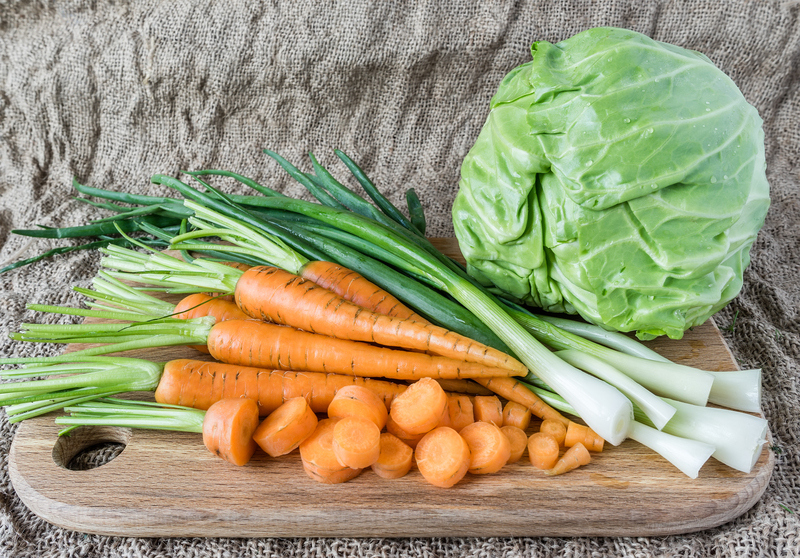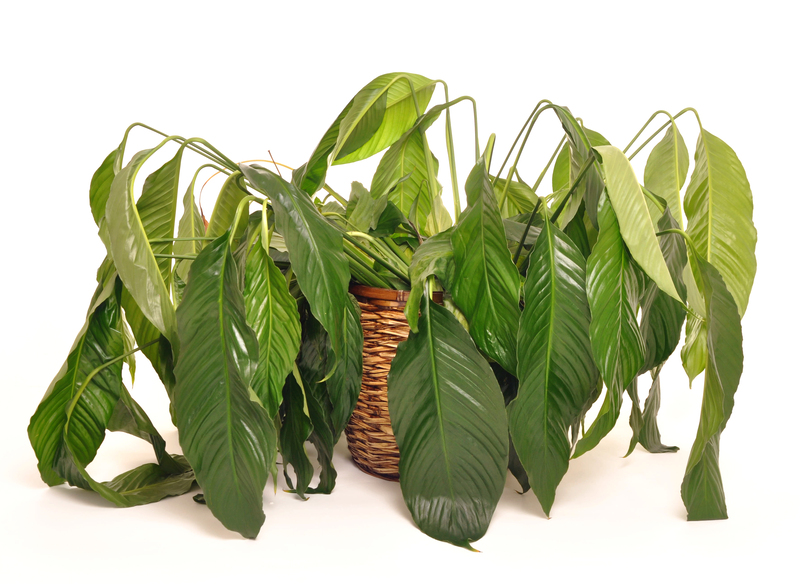Beginners, Unearth Your Gardening Skills with These 9 Tips
Posted on 13/06/2025
Beginners, Unearth Your Gardening Skills with These 9 Tips
Are you a beginner gardener looking to transform your outdoor space? Do you want to grow your own herbs, flowers, or vegetables but feel overwhelmed by where to start? Cultivating a garden is a rewarding, calming, and creative hobby that connects you with nature and brings fresh beauty to your yard or balcony. Whether you have a sprawling backyard or a cozy windowsill, unearth your hidden gardening skills with these 9 expert tips. Embark on your gardening journey for beginners now and watch your green thumb grow!
1. Choose the Right Plants for Your Space
One of the most important beginner gardening tips is selecting the right plants for your specific environment. Each plant has unique requirements, and understanding what thrives in your area is the key to success.
- Assess Sunlight: Observe how much sunlight your garden or balcony receives daily. Does the area enjoy full sun, partial shade, or mostly shade? Certain plants, like tomatoes and sunflowers, love lots of sunshine, while ferns and hostas prefer shade.
- Climate Matters: Consider your climate or hardiness zone. Some plants flourish in warmer temperatures, others withstand frost. Local garden centers will often showcase plants suitable for your area.
- Space: If you only have a windowsill or balcony, choose compact or container varieties like herbs, lettuce, or dwarf tomatoes. For larger gardens, the options are almost endless!
Best Plants for Beginners
- Basil, parsley, and mint are forgiving starter herbs.
- Marigolds, petunias, and zinnias brighten up flower beds with low maintenance.
- Salad greens, radishes, and cherry tomatoes yield quick, satisfying results.

2. Start with Healthy Soil
Soil is the foundation of every garden! For aspiring gardeners, healthy soil is essential for plant growth and resilience.
- Test Your Soil: Purchase a simple soil test kit from your local hardware or garden store to check pH and nutrient levels. Most vegetables enjoy slightly acidic to neutral soil (pH 6.0-7.0).
- Add Compost: Enrich your soil with organic compost or well-rotted manure. This improves drainage, aeration, and nutrients, making a world of difference for plant roots.
- Mulch: Apply mulch to retain moisture, reduce weeds, and keep soil temperatures regulated.
Pro Tip:
If your garden's soil appears problematic (too sandy or clay-heavy), use raised beds or large containers filled with high-quality potting mix.
3. Learn Proper Watering Techniques
Understanding how and when to water is vital in gardening for beginners. Overwatering is just as common as underwatering for new gardeners.
- Water Deeply, Not Frequently: It's better to water thoroughly a couple of times a week than to water lightly every day. Deep watering encourages roots to grow downward.
- Morning Watering: Watering plants in the early morning reduces evaporation and helps plants take up moisture before the heat of the day.
- Check Moisture: Use your finger to feel a few inches into the soil. If it's dry down there, it's time to add water.
Gardening Tool for the Job:
Choose a watering can with a gentle rose for delicate seedlings, or install a drip irrigation system for larger spaces.
4. Embrace Regular Maintenance
A flourishing garden requires regular maintenance--but don't worry, it's truly satisfying to see the results of your care!
- Weeding: Remove weeds as soon as they appear. Weeding prevents them from stealing water and nutrients from your desirable plants.
- Pruning: Pinch off dead flower heads (deadheading) and trim leggy or damaged stems to encourage bushier, healthier growth.
- Check for Pests: Look on leaves for spots, holes, or bugs. Early intervention can stop infestations in their tracks.
5. Encourage Biodiversity
A healthy garden needs more than just plants--it needs a living ecosystem. As a novice gardener, you'll benefit from attracting helpful insects and birds.
- Flowers: Plant a variety of flowers to lure pollinators like butterflies and bees. Lavender, coneflowers, and borage are excellent choices.
- Bird Feeders and Baths: Attract birds that eat harmful pests (like caterpillars and aphids).
- Insect Hotels: Provide shelter for beneficial insects, especially if you want to start organic gardening.
6. Learn Basic Gardening Tools and Their Uses
Every green thumb needs a few essential gardening tools. You don't need an entire shed to get started, but a core group of tools will make your gardening experiences enjoyable and productive.
- Gloves: Protect your hands from thorns and soil-borne microbes.
- Trowel: For planting, transplanting, and digging in tight spaces.
- Pruners: For snipping stems and deadheading flowers.
- Watering Can: For gentle watering of seedlings and small plants.
- Rake, hoe, and spade for larger gardens with more involved tasks.
Pro Tip:
Clean your tools after every use. Sharp, clean tools prevent the spread of plant diseases and make gardening easier!
7. Plan and Record Your Garden
Planning your garden layout can prevent mistakes and maximize your harvest. Don't forget to keep records; your future self will thank you!
- Draw a Map: Sketch out your garden. Note where sun and shade fall, and plan which plants go where.
- Succession Planting: Plan for continuous sowing throughout the season, so there's always something to harvest.
- Garden Journal: Record what you plant, the dates, and the results. Jot down what worked and what didn't for next year's reference.
8. Educate Yourself Continuously
All gardening beginners face challenges, but learning is part of the adventure! Arm yourself with gardening knowledge from various sources.
- Read Books, Magazines, and Blogs: There's a wealth of tips, tricks, and success stories from experienced gardeners.
- Join Local Gardening Groups: Whether online or in-person, these communities are friendly sources of advice and inspiration.
- Take Notes: Learn from your own experiences each season--every garden is unique!
9. Practice Patience and Enjoy the Process
Perhaps the most valuable gardening lesson for new gardeners: Patience is key. Gardening is a journey--not every seed sprouts, not every plant thrives.
- Celebrate Successes--Big and Small: The first green sprout or first bloom is always a thrill!
- Learn from Setbacks: Don't get discouraged by pests, bad weather, or a failed crop. Each challenge is a learning experience.
- Make Time for Reflection: Enjoy quiet moments watching bees or simply appreciating your progress.
Bonus Tips: Elevate Your Gardening Skills Further
- Explore companion planting--certain plants, like tomatoes and basil, help each other grow!
- Try vertical gardening to maximize small spaces.
- Start a compost pile for sustainable garden enrichment and waste reduction.
- Integrate edible plants like nasturtiums, calendulas, or violets for both beauty and salads.
Common Beginner Gardening Mistakes--and How to Avoid Them
- Overcrowding: Always check spacing recommendations on seed packets or plant tags.
- Neglecting Sun Requirements: Some vegetables and flowers will not bloom or fruit properly without adequate sunlight.
- Impatience: Not all seeds sprout overnight. Trust the process!
- Ignoring Pests or Disease: Inspect plants regularly and act quickly if something seems wrong; early detection is critical.

Frequently Asked Questions for Novice Gardeners
What are the easiest vegetables for beginner gardeners?
Try salad greens, radishes, carrots, green beans, and zucchinis. Herbs like basil and chives are also highly forgiving.
How often should I water my garden?
This depends on climate, rainfall, and plant type. Most gardens need about 1 inch of water weekly. Check soil moisture--if the top couple of inches are dry, water deeply.
Can I still garden indoors or with no yard?
Absolutely! Windowsill or balcony gardening with pots or vertical planters is possible. Many herbs and compact vegetables thrive in containers.
Why aren't my seeds sprouting?
Reasons can include old seeds, poor soil, lack of water, planting too deep, or incorrect temperature. Follow packet directions closely and stay patient.
Conclusion: Get Ready to Grow!
For beginners eager to unearth their gardening skills, success stems from a blend of planning, patience, and joyful experimentation. Remember--every famous gardener started with a single seed. Embrace mistakes, celebrate every bloom, and keep growing your knowledge.
Incorporate these nine essential gardening tips, and you'll be well on your way to cultivating a thriving, beautiful, and sustainable garden. Happy gardening, and may your beginner garden blossom beyond your wildest dreams!
Latest Posts
Must-Have Equipment for Every Garden Crusader
3 Simple and Effective Weed Management Tips
Your Roadmap to Exceptional Garden Seating Designs

